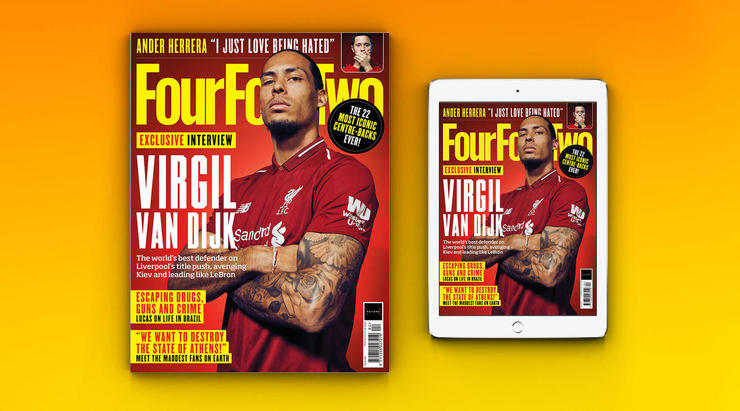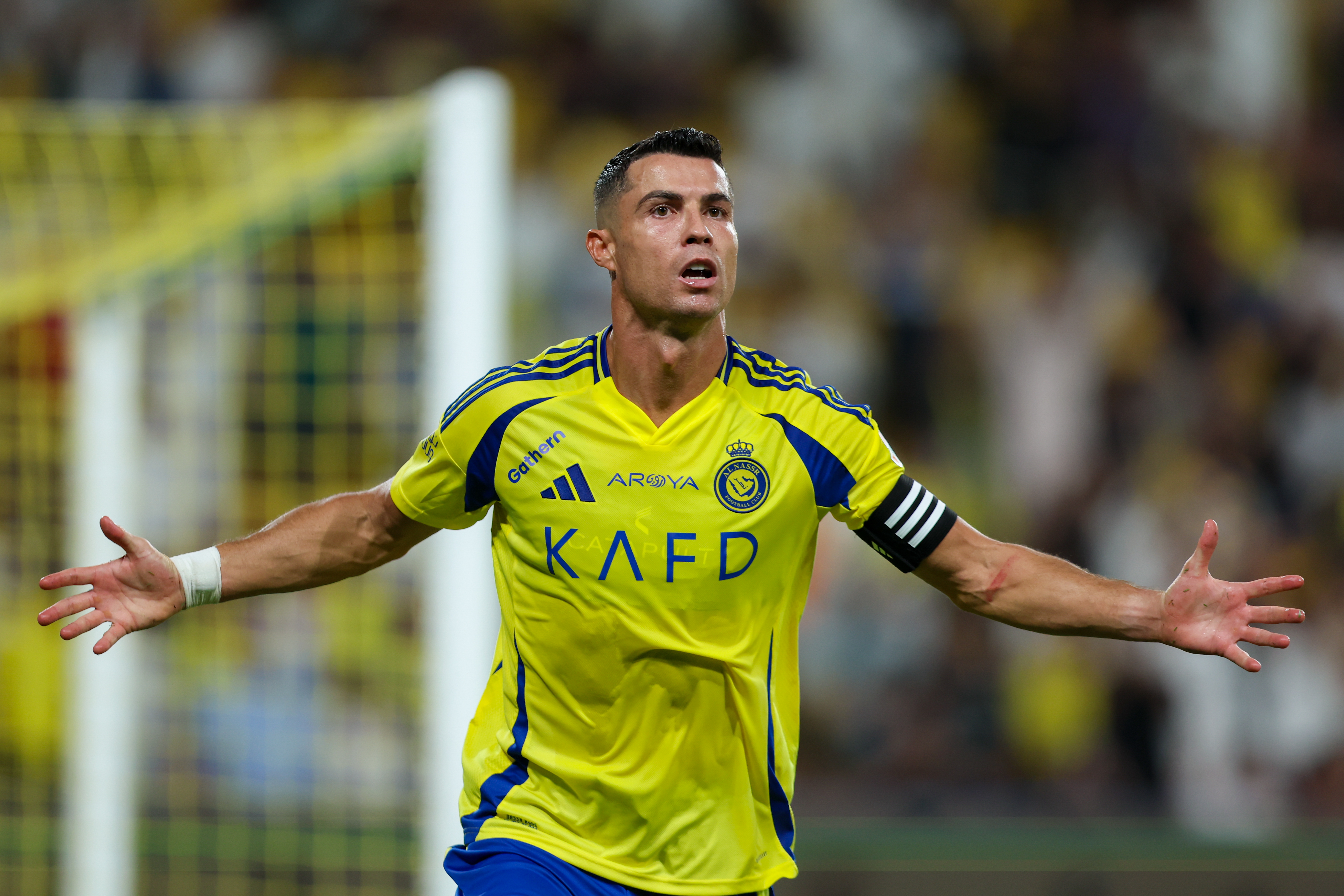Interview: Ruben Loftus-Cheek on Chelsea, Cech – and the Blues' surprise dressing room joker
He's progressed from promising midfielder to World Cup starter, aged just 22. But how can Ruben Loftus-Cheek become a Stamford Bridge mainstay? FourFourTwo’s Hunter Godson finds out if he has a plan
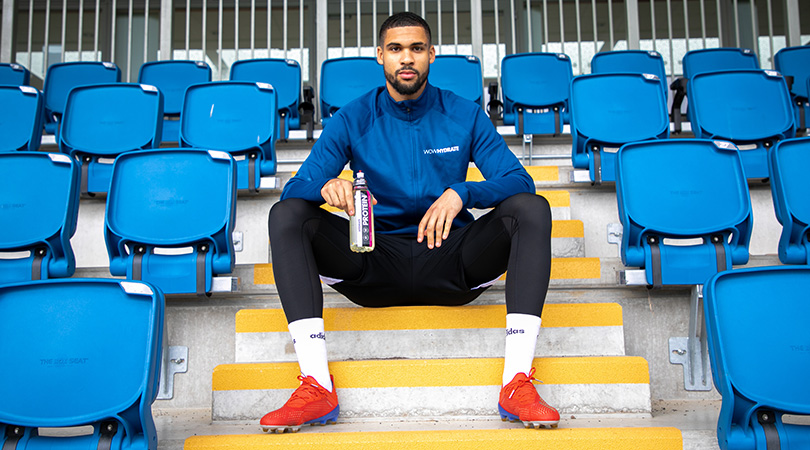
The first time you meet Ruben Loftus-Cheek, one thing stands out. It’s not the imperious physique which carries a set of granite shoulders. Nor is it his eternal patience on a wet Monday when we meet the Chelsea midfielder in a gym on a Weybridge industrial estate.
It’s the smile. True, the friendly receptionist – especially prolific at offering FourFourTwo cups of tea – and constantly thumping dance music soundtrack help to keep spirits high, but the 23-year-old is uplifting company. This may be a “manic” afternoon of workouts, recovery drills and interviews, but a cheeky grin remains a permanent fixture throughout as Loftus-Cheek is flanked by a small army of videographers, photographers and publicists.
He has plenty to smile about. Now a first-team regular at Chelsea – for whom he’s played since he was eight at the development centre in Catford – the Blues’ No.12 has excelled in this season’s Europa League, in particular. He hit a hat-trick against BATE Borisov in October, and is now eyeing a more permanent place in Maurizio Sarri’s domestic side after impressing on loan at Crystal Palace last term.
Then there was travelling to Russia with the England squad for the 2018 World Cup, at which he appeared four times as Gareth Southgate led the Three Lions to the semi-finals.
Softly spoken, Loftus-Cheek is another south Londoner – along with Borussia Dortmund sensation Jadon Sancho, Liverpool defender Joe Gomez and Blues team-mate Callum Hudson-Odoi – bidding to break into the elite from humble beginnings on the capital’s concrete courts.
“I learned to play football on the streets, and there’s plenty of goals about down that way,” he smiles. “I just always used to be out playing football. I guess me, Sancho and Gomez are reppin’ south London.”
Fiercely proud of his Lewisham roots, Loftus-Cheek is on the brink of becoming the top-flight regular that his talent has long since teased. And he can’t wait to get going...
Get FourFourTwo Newsletter
The best features, fun and footballing quizzes, straight to your inbox every week.
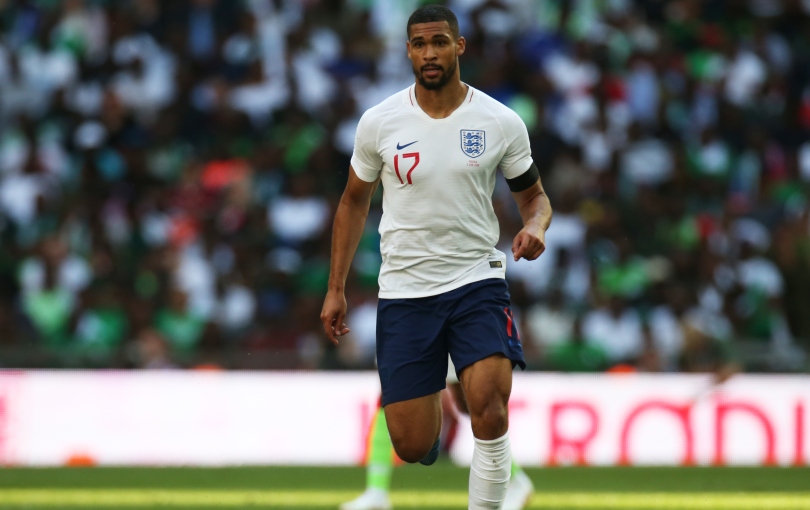
You’ve finally established yourself in Chelsea’s first-team squad this season, especially in the Europa League. How important has that competition been to your development?
The Europa League is certainly where I’ve got my opportunities since the start of the season. It’s a good competition – European football is a test and something we want to do well in. I’ve got more chances to play in the Premier League off the back of it as well. We want to go all the way and lift the trophy in May.
Has it been a steep learning curve?
To be honest, it’s not too different – it’s still a high level of football and playing under the lights at Stamford Bridge is always a great feeling. The one thing I’d say about playing in the Europa League is you have to be mentally strong. Travelling to grounds with hostile atmospheres and trying to win, grinding it out on pitches which may not be the best, is tough, so you have to be switched on.
Is the competition a priority for the club this season?
It’s obviously not the Champions League, but it’s still a big competition and I think we’re good enough to win it. Playing European football is something you look forward to every season.
You were a box-to-box midfielder as a youngster, played out wide a bit on loan at Crystal Palace last season, and Antonio Conte said he saw you as a forward. What’s your best position?
I’ve always considered myself to be a No.8 in midfield, but I can play in other positions. It’s good that I’m so versatile because I just love to play football and don’t mind where. Long term, though, I see myself as a box-to-box midfielder.
What was the thinking behind the move to Palace?
I’d been around Chelsea’s first-team since I was 17 and hadn’t played too much. It felt the time was right for a loan and to play some Premier League games. It was a great move for me. I met with Frank de Boer, and although we struggled early on I was impressed by how he likes to play football. I picked up a couple of injuries here and there, but 24 top-flight appearances was valuable experience, which earned me my England debut against Germany. It was a really good season for me.
Did you expect to be in England’s World Cup squad?
It wasn’t a complete shock. I’d been playing pretty well for Palace, so thought maybe I’d be in with a shout, but it wasn’t something I was expecting, either. I was at home and first heard through social media, before Gareth Southgate rang me up. Seeing my name in that squad was an amazing moment.
What was the mood in the England camp like at the beginning of the tournament in Russia?
Very light-hearted and confident, too. There was a mood, like we were there to have some fun but also play good football and win matches. That atmosphere gave us the platform to do really well and reach the semi-finals. We were unlucky in the end, but it was a great experience.
Did you have any idea exactly how crazy things were back home as the team progressed?
No, not at all. I was speaking to my mum on the phone and she was saying, “You don’t understand what’s going on.” She said even people wandering around IKEA were jumping on the furniture [after England beat Sweden in the quarter-finals]. You’re in a bubble, totally focused and in this camp by ourselves. We had no idea how mad things were.
What’s your earliest football memory?
It’s a little hazy, but I remember kicking a ball about in the park with my dad. My first proper memories of playing football would be when I was playing Sunday League for a team called Springfield. I loved it and would play all week with my mates, just having fun.
Who were your heroes as a kid?
I watched Arsenal a lot in the Thierry Henry days – I enjoyed watching him do his thing – when they just battered everyone. Zinedine Zidane was unbelievable towards the end of his career, too. When I got older and started playing in midfield in the Chelsea youth teams, I studied Frank Lampard really closely. He was a real inspiration on how I play.
You were part of Chelsea’s FA Youth Cup-winning sides in 2011/12 and 2013/14. What do you think the club are doing so much better than everyone else at youth level to have won that tournament in seven of the last nine years?
The key thing is the way they go about helping kids develop technique in the early stages. I’ve been with the club since I was eight years old and I can remember training after school on Tuesdays and Thursdays, repeating the same sessions focused on the core basics: striking a ball well, using both feet, dribbling and first touch. Do that weekly for god knows how many years and it makes a real difference to your game. The older you get, the more coaches improve your understanding of tactics. They do it the right way.
What was the best part of those Youth Cup wins?
Lifting the trophy, no question, and it was even more special doing so as the captain in 2014. We’d lost the previous final to Norwich, which was gutting for us, so to bounce back the following year made up for that defeat.
You learn a lot from losing a big match like that, even at youth level. You don’t want to experience that kind of disappointment again. The pain of going all that way, putting in so much effort, just to lose in the final... I don’t want to feel like that ever again.
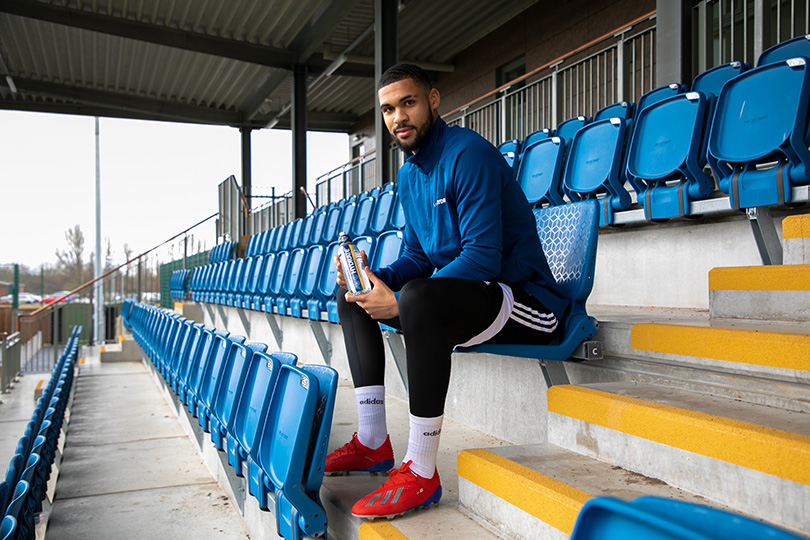
At 17, you travelled with the first-team squad on a post-season trip to the United States in 2013. What was that like?
It was pretty nerve-racking, to be fair. I couldn’t believe it when I saw my name on the list to go – I called my mum and dad straight away! The players that were there – Lampard, Ashley Cole, John Terry, Didier Drogba – had won pretty much everything in club football and I ended up playing in both games [against Manchester City in St Louis and New York]. It’s funny how fast you integrate with the team. You’re still a kid, but suddenly you’re sat next to Petr Cech while he reads his breakfast newspaper! It feels so grown up. Being around those players definitely helped me to kick on. Once you’ve trained with them and been around them, you rise to their standard – they demand it.
How special was winning the UEFA Youth League in 2015?
That was one of my favourite experiences, as it was totally different to any competition I’d played in before. You’d fly around Europe and play in what was effectively a mini Champions League. Our group was the same as the first team’s, so we’d travel together, but we’d play in the morning and then go and watch the first team in the evening. It gave you a little taste of what it was like to play in Europe.
You hit the winner in the 2016 Toulon Tournament Final, becoming the first Englishman to be named Player of the Tournament since Alan Shearer in 1991. What are your memories?
I remember the pitches weren’t the best, but we had a brilliant team with Gareth Southgate and Steve Holland on the staff. Our last group game against Japan was tough – that was a proper game. I’ve always loved playing for England. The first time was in the Victory Shield. The pre-match meal was silent – all you could hear was cutlery clanking – because everyone was really nervous to be playing for England, live on television, for the first time.
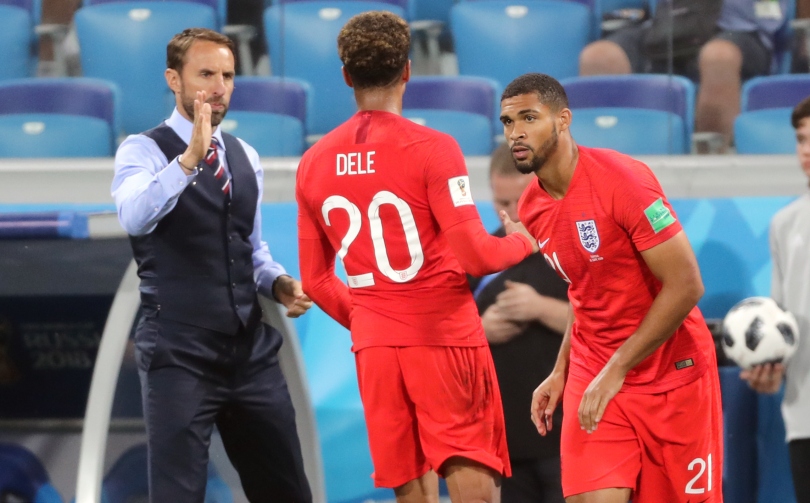
Were you surprised to make your Chelsea debut in December 2014, against Sporting in the Champions League?
I had no idea until the press conference. Jose Mourinho said I might play a part and that it was a big day for the academy. In the end I got about 10 minutes, but that was huge for me. I remember the moment I stepped onto that pitch – amazing. Afterwards, Jose said, “You owe me a bottle of wine for giving you your debut!” He’s a very funny guy.
Your first senior start came in May 2015 at home to Liverpool. How tough was it to deal with the hype of being the young poster boy?
I didn’t notice it too much. I played in a deeper role in that game and knew I was doing well. I always try to stay level-headed and not focus on what other people say about me.
What about pressure from family and friends?
You get used to it. The youth cups are a good transition – you play in front of big crowds for the first time, so you know if you do something wrong, you’ll hear about it from about 4,000 fans. You just get used to it as you’re growing up. Team-mates help with that.
Who’s the biggest character in the Chelsea dressing room now?
Danny Drinkwater is probably the dressing room clown now, which might surprise a few people! Apart from him, we’re quite a chilled team. I sit next to Andreas Christensen and usually hang out with him around the training ground. And Ethan Ampadu – I’m just, you know, taking care of him.
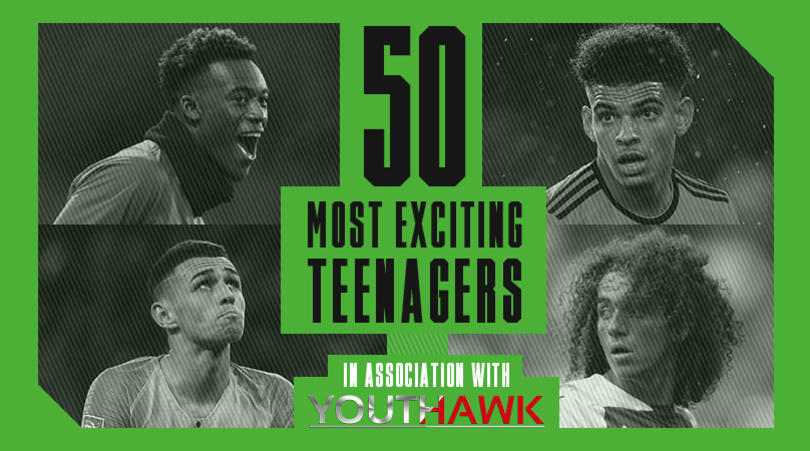
RANKED The 50 most exciting teenagers in English football
INTERVIEW Jadon Sancho: Why I left Manchester City for Borussia Dortmund
And who’s in charge of the music?
It used to be Victor Moses [who has now joined Fenerbahce on loan], but he played the same tunes! [FFT: Good tunes?] Yeah they were all right, actually. Toni Rudiger has a go, too. Most of us have similar tastes – hip hop, R’n’B, that sort of thing.
How do you relax away from the pitch?
I just chill. I go to the cinema, catch up with my friends or play on the PlayStation. I love a bit of Fortnite!
NOW TRY THESE…
BIG GRUMPY LIST67 things EVERYBODY hates about modern football
ANALYSISWhat Chelsea must do to help Maurizio Sarri become their Guardiola
EARLY STARTERS10 players who scored on their international debuts – then went on to greatness
Subscribe to FourFourTwo now! 6 issues for £19
